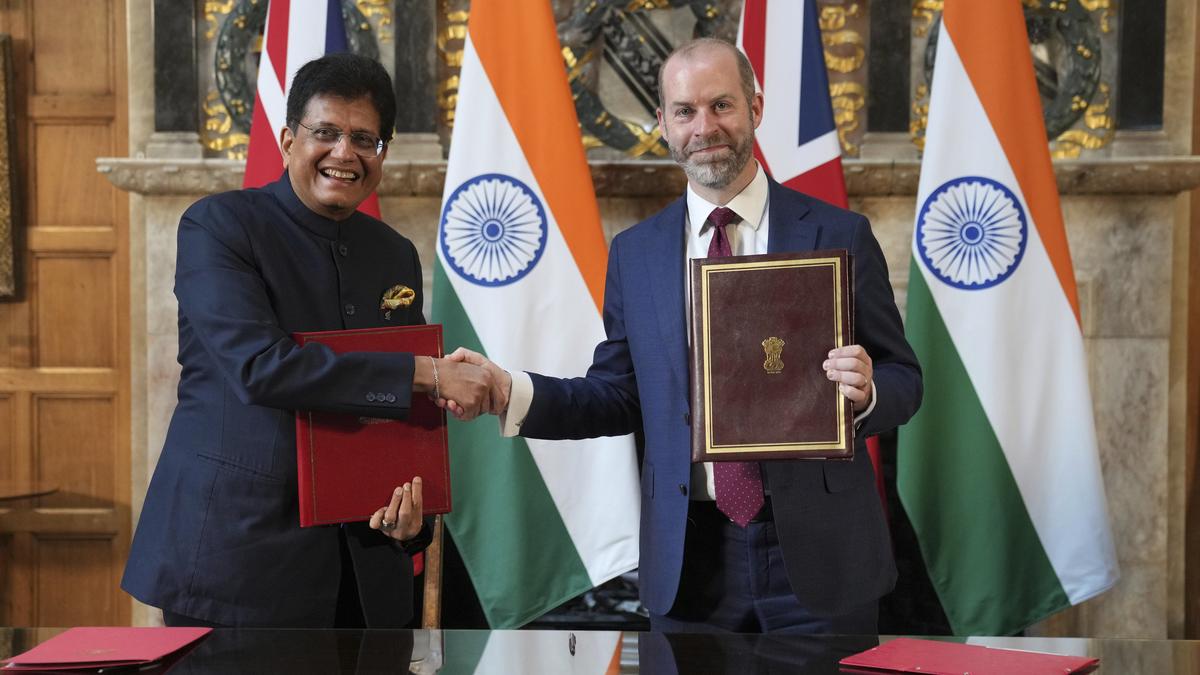Business
India Faces Challenges in Trade Pact with the U.K. Over IP Issues

The Comprehensive Economic and Trade Agreement (CETA) between India and the United Kingdom is raising significant concerns regarding India’s stance on intellectual property, particularly in Chapter 13. A focal point of contention is Article 13.6, which addresses the relationship between TRIPS (Trade-Related Aspects of Intellectual Property Rights) and public health measures. The article suggests that voluntary licensing, which may include technology transfer, is the preferred method for ensuring access to medicines. This aligns poorly with India’s historical advocacy for compulsory licensing as a means to combat high medicine prices.
India’s acceptance of this provision could undermine its long-standing commitment to compulsory licensing, which allows for the production of patented medicines at reduced prices. This mechanism was crucial during the 2012 licensing of Natco Pharma for the anti-cancer drug sorafenib tosylate, reducing its monthly cost from ₹280,428 to less than ₹8,800. Such drastic price reductions highlight the potential of compulsory licensing to improve access to essential medications and challenge excessive pricing by patent holders, such as Bayer Corporation.
Implications of Voluntary Licensing
The shift towards voluntary licensing raises serious implications for India’s ability to negotiate affordable medicine access. Médecins Sans Frontières (MSF) has criticized voluntary licenses, noting that they often come with stringent conditions that limit domestic manufacturers’ bargaining power. The case of Cipla, which produced remdesivir under a voluntary license from Gilead Sciences, illustrates these concerns. The pricing of remdesivir in India was higher than what Gilead charged in the United States, underscoring the limitations of voluntary licensing in ensuring affordability.
India’s commitment to a voluntary licensing framework also appears to weaken its negotiating power in international forums concerning technology transfer. Historically, India has pushed for technology transfers from advanced to developing countries on terms that benefit developing nations. This demand was first articulated in the United Nations General Assembly Resolution on the New International Economic Order in 1974. However, the recent agreement potentially compromises this position, as India may struggle to advocate for favorable terms in future discussions.
The Path Forward
The CETA agreement may also affect India’s ongoing efforts to secure technology transfer for climate-friendly technologies, as expressed in its Fourth Biennial Update Report to the United Nations Framework Convention on Climate Change in 2024. The report highlighted barriers such as slow international technology transfer and intellectual property rights as significant obstacles to adopting sustainable technologies.
As India navigates this complex landscape, the implications of the CETA on its intellectual property policies and public health strategies remain a focal point of concern. Experts like Biswajit Dhar, former Professor of Economics at the Jawaharlal Nehru University, and K.M. Gopakumar, Senior Researcher and Legal Adviser at the Third World Network, emphasize the need for India to reaffirm its commitment to compulsory licensing to protect public health and ensure equitable access to medicines.
The unfolding situation underscores the delicate balance India must strike between fostering international trade relations and safeguarding its health and technology interests. As discussions continue, the ramifications of India’s decisions in the CETA will likely resonate in both domestic and international arenas for years to come.
-

 World4 months ago
World4 months agoSBI Announces QIP Floor Price at ₹811.05 Per Share
-

 Lifestyle4 months ago
Lifestyle4 months agoCept Unveils ₹3.1 Crore Urban Mobility Plan for Sustainable Growth
-

 Science4 months ago
Science4 months agoNew Blood Group Discovered in South Indian Woman at Rotary Centre
-

 World4 months ago
World4 months agoTorrential Rains Cause Flash Flooding in New York and New Jersey
-

 Sports4 months ago
Sports4 months agoBroad Advocates for Bowling Change Ahead of Final Test Against India
-

 Top Stories4 months ago
Top Stories4 months agoKonkani Cultural Organisation to Host Pearl Jubilee in Abu Dhabi
-

 Science4 months ago
Science4 months agoNothing Headphone 1 Review: A Bold Contender in Audio Design
-

 Top Stories4 months ago
Top Stories4 months agoAir India Crash Investigation Highlights Boeing Fuel Switch Concerns
-

 Sports4 months ago
Sports4 months agoCristian Totti Retires at 19: Pressure of Fame Takes Toll
-

 Business4 months ago
Business4 months agoIndian Stock Market Rebounds: Sensex and Nifty Rise After Four-Day Decline
-

 Politics4 months ago
Politics4 months agoAbandoned Doberman Finds New Home After Journey to Prague
-

 Top Stories4 months ago
Top Stories4 months agoPatna Bank Manager Abhishek Varun Found Dead in Well









